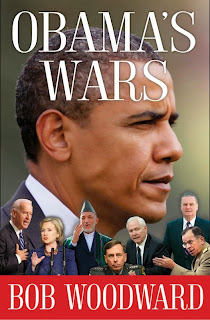I read this book as the combat almost two full years after the last combat troops were pulled out of Iraq, and during the handover to NATO troops in Afghanistan, but the insight to those decisions could not be clearer. Throughout the book, Woodward documents the critical decisions making process taken by the administration, that at times was nearly paralyzed by turf wars and backbiting.
Early into the book Woodward’s bias is first betrayed. In the first few chapters great pain is taken to describe the pitfalls of the Bush administration’s handling of the war, and the residue of those maneuvers on current events. As the book proceeds, it is easy to see a “us verse them” mentality between military and civilian leaders was very present and well established by the time President Obama takes office. The facts, as presented by Woodward, show the measures taken first by Candidate Obama, President-Elect Obama and finally President Obama to utilize the military. Those measures were soundly rebuffed on all fronts with few exceptions.
Again, Wooward’s bias pokes out, if ever so slightly. At no time does President Obama force the wrong issue, say the wrong thing, or make anything but a well thought out and researched decision. Where President Bush surrounded himself with “yes men” and listened to every word they brought forth as gospel; President Obama is not afraid to hear “no”, and built his opinions from the stones of wisdom mined by his “Team of Rivals.”
To me this is a little unfair. Understandably the military did have barriers in place from the previous administration. It is, and continues to be clear that President Bush’s personal prerogative in fighting the war. It is well documented his mulish tendencies in fighting the war, that were compounded by a complete lack of competent underlings. Thus, no matter how friendly the hand that next reached forward, the military was right in being protective of its turf, and more importantly the lives of American troops. It is the opinion of this writer that, if a mistake was made in this regard, it was by President Obama in over-reacting to the rebuffs. Such a reaction cost valuable time, and in some cases lives, to repair and rebuilt those connections.
This, however, is my only critic of Woodwards book. Bias is, of course, unavoidable. While it is evident throughout, Mr. Woodward researched the book extensively using a broad range and level of sources. For those interested in the Obama Administration, the Iraq and Afghanistan wars, or military/civilian relations, it was well worth the time to read.


No comments:
Post a Comment